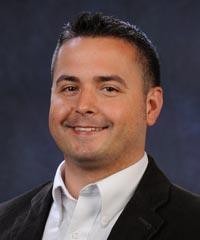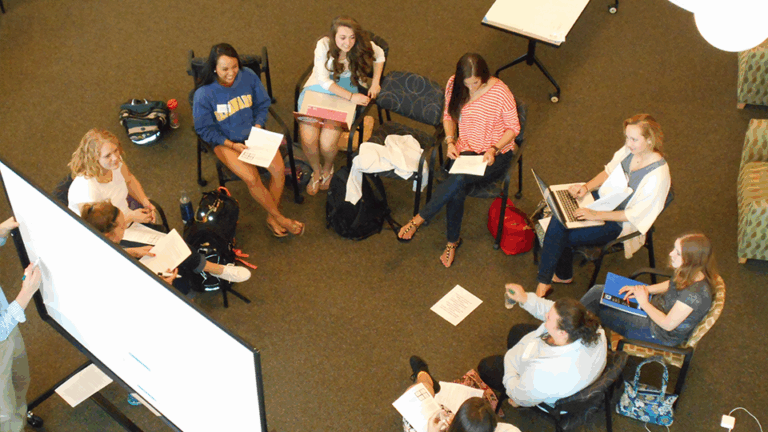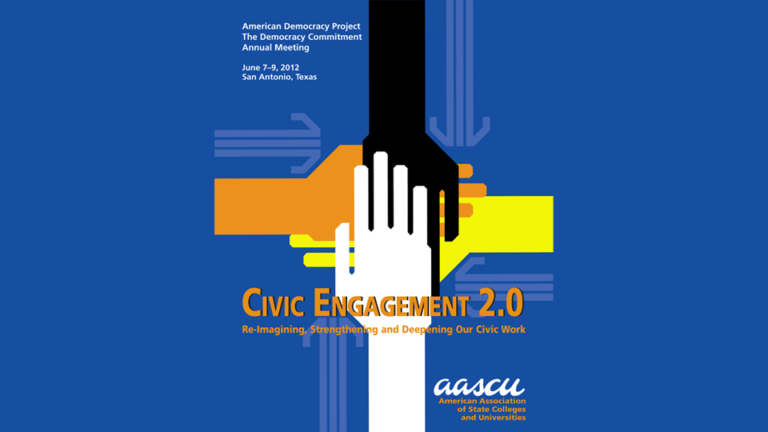Guest Editor’s Introduction
Michael Stout, PhD
Missouri State University
Author Note
Dr. Michael Stout, Chair, American Democracy Project, Missouri State University.
On occasion the eJournal of Public Affairs publishes special issues highlighting research and best practices related to American Democracy Project (ADP) initiatives. This special issue is organized around the ADP eCitizenship initiative and it highlights three projects that relate to ways social media technologies are being used to teach students civic skills on four college campuses in the United States.
Facebook®, wikis, blogs and a host of other technology-based tools are transforming the ways that citizens interact with others and with government. Indeed, technology is transforming our democracy. It has been argued in the media that by providing public venues for dialogue and community organizing, this new form of “eCitizenship” serves as a powerful tool for civic engagement and political participation. In this issue we asked the question, “How do we begin to understand this transformation and to find ways for colleges and universities to use these tools to prepare informed, engaged citizens?” We received three manuscripts that we hope will provide educators with useful information on innovative ways for incorporating eCitizenship in their classes. Each article summarizes an eCitizenship initiative on a college campus, but the information provided will also be useful for teaching middle school students, high school students, and community members to effectively use social media technology for the development of civic skills.
The ADP eCitizenship initiative is a partnership between the American Association of State Colleges and Universities (ASSCU), ADP, and the Center for the Study of Citizenship at Wayne State University. The thirty-five institutions of higher education that are participating in this initiative are working together to study how emerging technologies, particularly social networks, support and facilitate civic and political engagement. The main goal of the initiative is to provide insights into and strategies for engaging undergraduates in the use of social networks and technology tools for civic purposes. Those strategies can then be broadly employed to prepare undergraduates for lives of engagement and participation.
In this issue, we highlight three projects that utilize eCitizenship on college campuses. The first, Civil Dialogue for the Twenty-First Century: Two Models for Promoting Thoughtful Dialogue Around Current Issues on a College Campus, describes two models for promoting civil dialogue around important social and political issues on a college campus – Democracy Plaza at Indiana University Purdue University Indianapolis (IUPUI) and The Civil Debate Wall at the University of Florida (UF) – and examines the differing types of expression fostered by each platform, as well as highlights and challenges of each platform. By doing so, it offers important insights for institutions of higher learning that seek to promote not just civil dialogue, but also a culture of civility and engagement, on their respective campuses. Whether armed with a budget of one million dollars or just one thousand dollars, campuses can and should create spaces for meaningful dialogue surrounding important issues.
The second, iPolitics: Talking Government with the American Idol Generation, summarizes the results of a survey of Millennial college students to test their political knowledge and awareness in comparison to their understanding of pop culture.
The third, Tomorrow’s People: Using Facebook to Advance Civic Engagement and Global Learning in a First Year Seminar, examines the use of Facebook as an instructional tool in two first- year seminar courses during two consecutive years. The convergence of social media and in-class instruction throughout the semesters was examined to identify whether Facebook has positive utility in teaching and learning. Pre- and post-course surveys, real time assessment of learning outcomes and a questionnaire on Facebook use yielded results consistent with much of the research that tends to offer a mixed assessment of viability and effectiveness. This research found a high level of viability based on students’ survey response. The article also offers a narrative on how to best execute these learning opportunities, with specific emphasis placed on two learning outcomes, global learning and civic awareness and engagement.
Author Biography
Dr. Mike Stout is an associate professor of Sociology at Missouri State University. His research interests are in the area of social capital and civic engagement. In 2010 Dr. Stout and two other MSU sociologists collaborated with the National Conference on Citizenship to produce the “Missouri Civic Health Index,” a report summarizing the empirical indicators of civic health for the state of Missouri. Dr. Stout is also the coordinator of the Ozarks Regional Social Capital Study (ORSCS), an ongoing
 project that tracks levels of social capital and civic engagement in Southwest Missouri. Funded by a local coalition of private, philanthropic, and public contributions the ORSCS is a valuable source of information for community and civic leaders in the Ozarks.
project that tracks levels of social capital and civic engagement in Southwest Missouri. Funded by a local coalition of private, philanthropic, and public contributions the ORSCS is a valuable source of information for community and civic leaders in the Ozarks.
Keywords
ADP; engagement; eCitizenship


